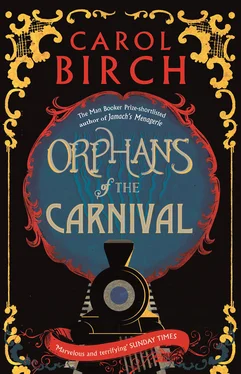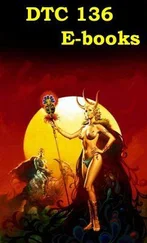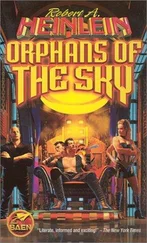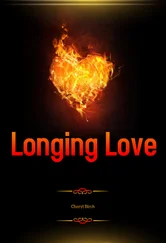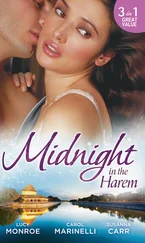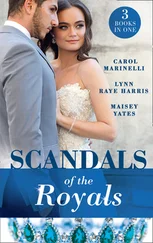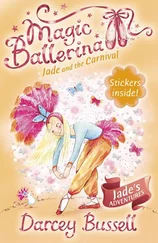He wanted to storm over there and beat them all to death. He roared. Oscar laughed.
‘It’s not even that bad,’ she said, ‘I can just about hear it if I stand really still and…’
‘Are you deaf?’
‘No, Theo,’ she said, raising her eyes to heaven, ‘I am not deaf.’
He put his head down and ran towards the wall as if he was going to butt it, but stopped short and swept all the things off the writing table instead. Then he swung around and dashed the samovar across the floor. Oscar started to cry. Marie swept him up in her arms.
‘Get out!’ she shouted. ‘Get out if you can’t behave like a respectable person.’
He ran out, down through the museum and into the street. He started shouting up at the house next door but one, cursing and screaming and damning them all to death, then ran away.
‘Oh my God,’ Marie whispered, and went to call on a neighbour to watch the child.
The police were called because there was a madman on Tuchkov Bridge, pulling money out of his pockets, tearing it up into little pieces and throwing it into the black water of the Little Neva. After that, out came handfuls of copper. That went over too. Then he took off his clothes down to his socks and drawers and tossed each item separately out into the void, cheering and laughing as each one landed on the water and was carried away. A large crowd had gathered at the entrance to the bridge. Two policemen approached. ‘Enough now, old man,’ one of them said.
‘Shut your trap,’ said Theo.
He ran from them, and a chase began. He laughed and leapt in the air, shrieking his cat yowl, raving. ‘Hypocrites,’ he roared, as the first policeman gripped his arm. ‘I’m a bad man.’ They pulled him through the crowd. The cold was getting to him now. ‘You make such a fuss about all this,’ he said through chattering teeth, ‘but what about you? You wouldn’t want her, would you?’ He was slurring his words as if drunk, but curiously, for once, he wasn’t. ‘Marry her, would you? Give her proper love like a man should? No you wouldn’t, so you shut your trap.’
The crowd doubled and a carriage appeared on the far side of the bridge. Three men emerged from it.
‘Off to the mad-house,’ someone said.
They put him in a straitjacket and took him to the police station, where Marie waited, veiled, statuesque, forbidding. She had been waiting to see what state he was in, wondering what she should do. But when she heard the hysteria in his laugh as he looked at her, and saw the wild look in his eyes, she knew she couldn’t cope any more.
‘You may as well keep him in that,’ she said, ‘I’ve done all I can. It’s not fair on the child. He must be committed.’

The paperchains had come as several packs of red and gold paper strips half an inch wide. Licking the sticky ends to make links had made the insides of Rose’s cheeks feel sour, but it was worth it for the way they looked, hanging in U-shapes all round the tops of the walls, above the mirror, around the doors and windows. Tattoo, away being fixed, had given up his place in the centre of the mantelpiece to the tree. The crinkled gold paper of its pipe cleaners shone in the fire and candle light. High above the fireplace, red and gold links also shone. Half asleep, Rose was still in some way aware of a gentle festive peace enfolding the room.
Eyes closed, once more adrift in the magic wood, going deeper.
Deeper.
She was never more complete, more sane, than when she was here, every little dropped discarded thing around her also sleeping. The flickering of light from two half burned — down pink candles, one either side of the tree, played on her closed lids and she opened her eyes. Half seeing, they misted over with affection. Who cares for these lost things? Things once touched. The touch, still there. Someone was alive and loved them once. Somewhere. How they pull at the heart, and yet they tell me I have no heart. I’m not clever, the world runs rings round me. But I’m thickening out now, going somewhere bigger than the world and all its cleverness. Music afar, a thrill in the air.
Closed lids.
The woods. One day instead of falling asleep, she’d get there — the opening of the trees, the castle across the moat, the drawbridge. Welcome, long awaited. She’d walk across the bridge and go inside. Nothing was more sure. But first she’d fly to the island. No one else around, the waters stirring with the wading feet of a ghost girl, the moon throwing light on smiling mouths, pink and soft, on little feet, little hands, on the eyes of the dolls, some closed, some wide, some gone. And if in some imagining, some fever, the dolls, called by the moon, suddenly opened their mouths in unison and sang together, and she, wherever she may be — very very far away, glancing sideways — if she should hear even the smallest flicker on the edge of hearing, the edge of sleep, what would it sound like?
Fast asleep now, beyond the woods and the island, unaware that the rain had begun, that it gently flecked her window and set off a sweet sing-song in the gutters and drains.
With no sound at all a gold link gave way in one of the paperchains. The chain whispered as it dropped down the wall, bunching on top of the tree but also pulling at some Blu-Tack holding up the next drape, so that that fell too, and the gold link at its end touched the top of the straight gold flame of the candle on the right-hand end of the mantelpiece. The flame reached up, welcoming.
It was free, and ran all over the room, so ripe and lush and ready for the taking, carrying the whole thing and everything in it out of the world.

A few years later Hermann Otto ran into Julia in Munich. He’d been standing for a long time in front of the large glass cabinet, falling into a melancholy state as the rain teemed down on the canvas, remembering the living Julia while gazing at what remained.
The Anthropolical Exhibition had been set up under the awning of a big marquee, so that you had to pass it on the way into the circus. Gassner, the owner of the place and an old acquaintance, approached. ‘Marvellous, isn’t she?’ he said.
‘Indeed.’ Otto spoke gruffly. ‘And the poor little chap.’
‘No matter how much you look at her,’ Gassner said, ‘she never becomes more believable.’
Otto smiled. ‘She’d have made a good mother,’ he said.
‘Well,’ said Gassner, a short dapper man with an oiled goatee, ‘they’re mine now.’
‘You’ve bought them?’
‘Acquired,’ said Gassner. ‘You could say they’re donations. I think she just wants to be rid of them. Have you met La Nouvelle Pastrana?’
Otto hadn’t. Gassner conducted him through a red curtain, along a draped passageway, and through another curtain decorated with yellow moons on a deep blue ground. A small comfortable grass-floored area was laid out with sofas and easy chairs and low tables set with pastries and wine. Zenora Pastrana sat veiled on one of the sofas but rose to greet Otto.
‘I’ve heard about you,’ she said.
She was wearing a black straw hat, highly feathered. The voluminous veil of spotted lace, pulled tight round her throat, obscured but did not completely hide her features. When she loosened the ribbon and unveiled, the effect was so much less startling than with Julia. Her face, broad-featured and masculine, was immaculately groomed and very friendly. She shook his hand firmly, and they sat down and drank wine. She was in town to offload the mummies en route from Saint Petersburg to Karlsbad, she said.
Читать дальше
